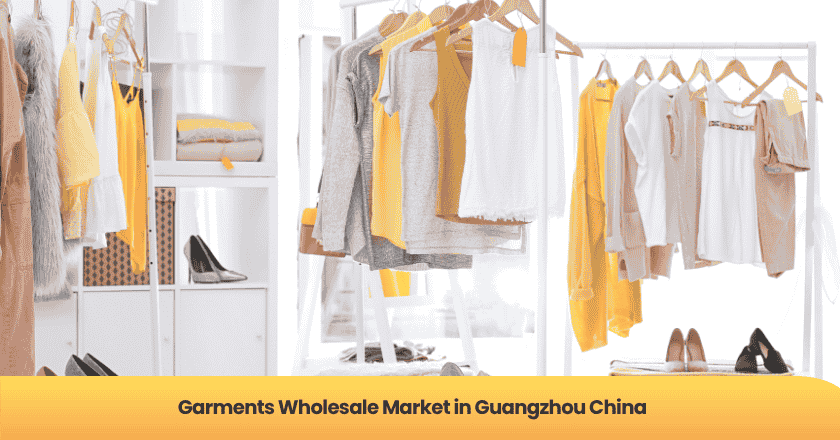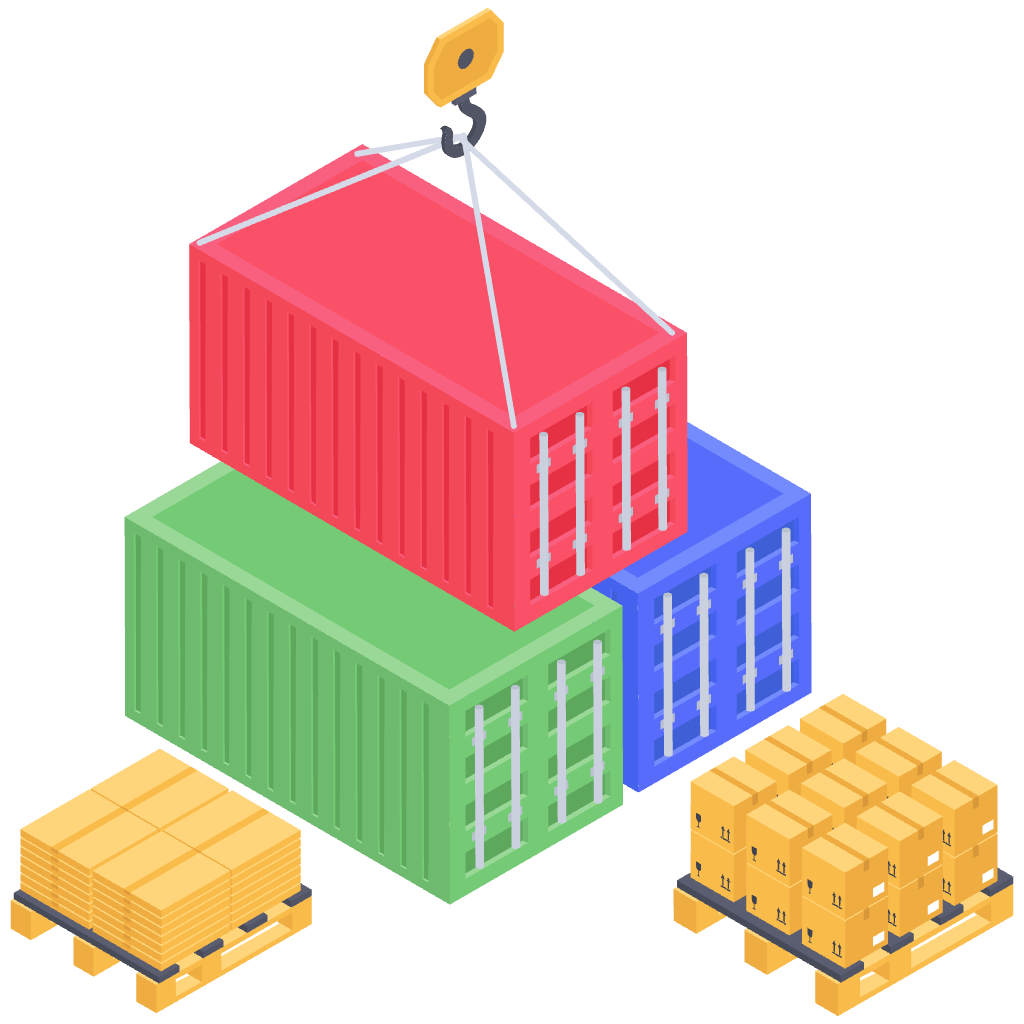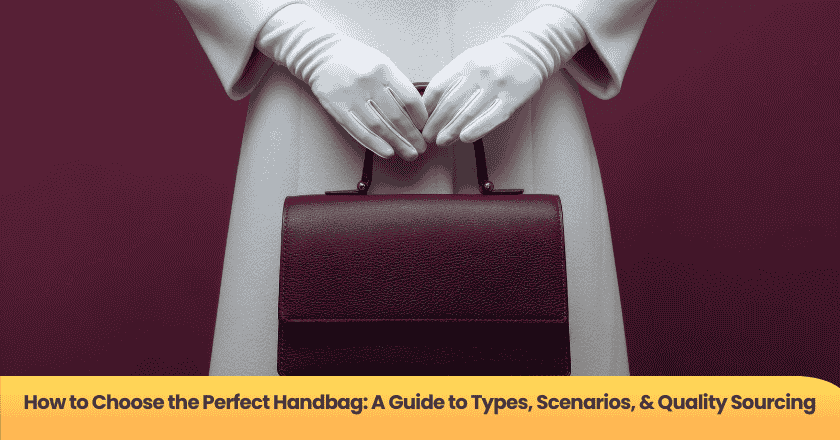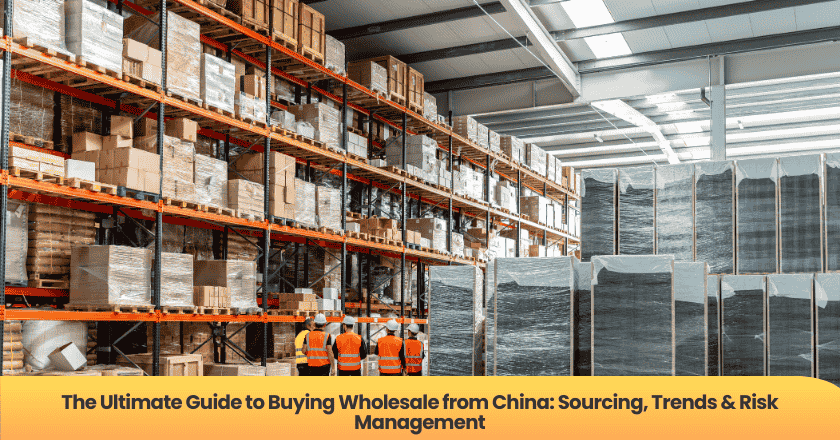
When I look for the best garments wholesale market in Guangzhou China, I always head straight to the city's sprawling trade districts. Guangzhou stands out as a powerhouse in global apparel sourcing. I see endless rows of shops and bustling crowds, with markets offering everything from fast fashion to timeless classics. International buyers flock here because the sheer scale and variety guarantee options for every need.
Key Takeaways
- Guangzhou's wholesale markets offer a vast selection of garments, catering to various styles and budgets. Explore major markets like Shahe, Baima, Liuhua, and Shisanhang for the best deals.
- Preparation is key for successful sourcing. Research trends, create a shopping list, and check market hours before visiting to maximize your time and efficiency.
- Negotiation is expected in these markets. Always ask for the best price, compare offers, and consider bundling items to secure better deals.
- Quality assurance is crucial. Inspect products closely and request quality reports before placing bulk orders to ensure you receive what you expect.
- Utilize local sourcing solutions like NewbuyingAgent to streamline your procurement process. They can help with product selection, negotiation, and logistics.
Garments wholesale market in Guangzhou China
Major markets overview
When I explore the garments wholesale market in Guangzhou China, I notice four major destinations that dominate the industry. Each market has a unique atmosphere and specialty. I see buyers from all over the world searching for the best deals and latest styles. These markets offer a wide range of products, from casual wear to luxury fashion. I find that the location and focus of each market help me decide where to source specific items.
- Shahe Market: Known for affordable fashion and high-volume trading.
- Baima Market: Famous for quality garments and trendsetting designs.
- Liuhua Market: Specializes in mid-to-high-end apparel and business wear.
- Shisanhang Market: Offers a mix of traditional and modern clothing, with a strong export focus.
I always recommend visiting these markets to experience the diversity and scale of the garments wholesale market in Guangzhou China.
Shahe market
I walk into Shahe Market and immediately feel the energy. Vendors shout out prices and display racks overflow with the latest styles. Shahe sits in the Tianhe District, close to the Shahe metro station. I see mostly young entrepreneurs and bulk buyers searching for fast fashion at unbeatable prices. The market covers several buildings and streets, making it one of the largest in the city. I find casual wear, sportswear, and accessories in every corner. Shahe Market stands out for its affordability and massive selection. I often suggest Shahe to buyers who want to maximize profit margins in the garments wholesale market in Guangzhou China.
Tip: Arrive early in the morning to catch the best deals and freshest stock.
Baima market
Baima Market impresses me with its modern facilities and organized layout. Located near Guangzhou Railway Station, Baima attracts buyers who value quality and style. I see showrooms filled with designer-inspired pieces, business attire, and seasonal collections. The market has a reputation for setting fashion trends in the garments wholesale market in Guangzhou China. Many brands launch new lines here before distributing them nationwide. I notice that Baima vendors focus on quality control and customer service. I recommend Baima to buyers who need reliable suppliers and premium products.
Liuhua market
I step into Liuhua Market and see a different atmosphere. The market sits close to Baima, but it targets a more professional crowd. I find suits, uniforms, and formal wear in every shop. Liuhua specializes in mid-to-high-end garments, making it popular among business buyers and corporate clients. The vendors here offer customization and bulk orders. I appreciate the market’s focus on quality and consistency. If I need business attire or uniforms, I always visit Liuhua in the garments wholesale market in Guangzhou China.
Shisanhang market
Shisanhang Market stands as one of the oldest and most historic markets in Guangzhou. I walk through narrow alleys lined with shops selling traditional Chinese clothing, children’s wear, and export-ready garments. The market sits in the Liwan District, near the Pearl River. I see buyers from Africa, the Middle East, and Southeast Asia negotiating bulk deals. Shisanhang combines tradition with modern fashion, offering a wide range of products for export. I recommend Shisanhang to buyers who want to explore unique styles and international trade opportunities.
Note: Many shops in Shisanhang offer export services and multilingual staff to assist overseas buyers.
Product range
Clothing types
When I walk through the wholesale markets in Guangzhou, I see an incredible variety of clothing types. Each market offers something unique. I find casual wear, business attire, sportswear, and children’s clothing. Many vendors display racks filled with T-shirts, jeans, dresses, and jackets. I notice that some shops focus on specialty items like uniforms, evening gowns, or plus-size fashion. The diversity allows me to source products for different customer segments. I often create a checklist to keep track of the styles I need.
- Casual wear: T-shirts, jeans, shorts, hoodies
- Business attire: Suits, blazers, dress shirts, skirts
- Sportswear: Tracksuits, leggings, active tops
- Children's clothing: Sets, dresses, school uniforms
Tip: I always ask vendors about their best-selling items to understand current demand.
Fashion trends
I pay close attention to fashion trends when I visit these markets. Vendors update their collections frequently to match global styles. I see new arrivals every week, reflecting the latest colors, patterns, and silhouettes. Many shops showcase trendy pieces like oversized jackets, streetwear, and eco-friendly fabrics. I notice that some markets specialize in fast fashion, while others focus on premium or designer-inspired looks. Staying updated with trends helps me select products that attract buyers.
Accessories
Accessories play a major role in the garments wholesale market. I see vendors offering bags, hats, scarves, belts, and jewelry. Many buyers add accessories to their orders to increase profit margins. I often find shops that specialize in seasonal items like sunglasses or winter gloves. Accessories help me create complete collections for my customers. I recommend exploring accessory stalls to discover new products and boost sales.
- Bags and backpacks
- Hats and caps
- Scarves and shawls
- Belts and jewelry
Note: I always check the quality and packaging of accessories before placing bulk orders.
Access and logistics
Location and transport
When I plan my visit to the garments wholesale markets in Guangzhou, I always check the location first. Most major markets sit near central transport hubs, which makes access easy. Shahe Market lies in the Tianhe District, close to Shahe metro station. Baima and Liuhua Markets stand near Guangzhou Railway Station, which connects to the city's metro and bus lines. Shisanhang Market sits in the Liwan District, not far from the Pearl River. I usually take the metro because it offers a fast and reliable way to reach each market. Taxis and ride-hailing apps also provide convenient options, especially if I carry large samples or purchases.
Tip: I use a city map app to plan my route and avoid traffic during peak hours.
Operating hours
I always check the operating hours before heading out. Most wholesale markets in Guangzhou open early, usually around 8:30 AM. Vendors start setting up before sunrise, and the busiest hours fall between 9:00 AM and noon. Markets typically close by 6:00 PM, though some shops may stay open later during peak seasons. I prefer to arrive early to catch the freshest stock and avoid crowds. Weekend hours may vary, so I confirm with vendors if I plan to visit on Saturday or Sunday.
Entry requirements
When I enter these markets, I notice that most do not require special passes for buyers. I walk in freely and start browsing. Some markets may ask for business cards or proof of business registration if I want to access wholesale-only sections or negotiate bulk deals. I always carry my identification and business documents to speed up the process. Security staff sometimes check bags at the entrance, especially in larger markets. I recommend preparing a shopping list and keeping cash or mobile payment apps ready for quick transactions.
Note: I find that having a local contact or translator helps me communicate with vendors and navigate entry requirements smoothly.
Sourcing solutions
NewbuyingAgent services
When I source products from the garments wholesale market in Guangzhou China, I look for ways to streamline the process. I rely on NewbuyingAgent to handle the complexities of procurement. This service acts as my local partner in China. I visit their official website to start the process. NewbuyingAgent connects me with a network of over 50,000 factories and 20,000 experts. I use their AI-driven insights to identify trending products and secure the best deals. NewbuyingAgent manages everything from product selection to negotiation and logistics. I save time and reduce costs by letting NewbuyingAgent handle the details.
Tip: I always check the latest product recommendations on their website to stay ahead of market trends.
Payment and shipping
I appreciate how NewbuyingAgent simplifies payment and shipping. The service offers flexible payment terms that fit my business needs. I can choose from several secure payment options, which helps me manage cash flow. Once I place an order, NewbuyingAgent coordinates with suppliers and arranges shipping. They handle customs paperwork and track shipments until they reach my warehouse. This end-to-end support allows me to focus on growing my business instead of worrying about logistics.
Quality assurance
Quality matters most when I buy from the garments wholesale market in Guangzhou China. NewbuyingAgent provides strict quality control at every step. Their team of experts inspects products before shipment. If I ever face a quality issue, they offer full compensation. This assurance gives me confidence to place large orders. I trust their process to deliver consistent results and protect my investment.
Note: I always request a quality report before finalizing any bulk order.
Pricing and negotiation
Price ranges
In Guangzhou's garment wholesale markets, there is a wide range of prices. Basic T-shirts and casual wear often start as low as $1 to $3 per piece. Trendy fashion items or business attire usually cost between $5 and $15 each. High-end garments, such as designer-inspired pieces or formal suits, can reach $20 or more per item. Always compare prices across several vendors before making a decision, as prices depend on fabric quality, design complexity, and order volume.
Note: Prices fluctuate based on season, demand, and current fashion trends.
Bargaining tips
Negotiation plays a big role in these markets. Never accept the first price a vendor offers; instead, start by asking for the best price and express interest in bulk purchases. Use a friendly tone to build rapport with the seller, and occasionally mention that you are comparing prices across other shops—vendors often lower their prices when they recognize genuine purchasing intent. Always stay polite and patient throughout the negotiation process.
- Ask for the "last price" after the initial quote.
- Bundle different items to get a better deal.
- Use cash for small discounts.
- Walk away if the price does not meet your budget—many vendors call me back with a better offer.
Minimum orders
Most Most wholesale vendors set a minimum order quantity (MOQ). MOQs typically range from 10 to 50 pieces per style or color, while some shops allow mixed designs within a single order. Higher-end markets may impose larger MOQs, especially for custom or branded items. Always clarify the MOQ upfront—before negotiating prices or placing an order—since meeting the MOQ often unlocks better pricing and more favorable terms.
Tip: Ask vendors if they offer sample orders before committing to a large purchase.
Market trends
Recent changes
I have noticed significant shifts in the garments wholesale market in Guangzhou over the past few years. The market has become more dynamic and responsive to global fashion trends. Vendors now update their collections more frequently, sometimes every week. I see a stronger emphasis on sustainable fabrics and eco-friendly production methods. Many suppliers have started to offer smaller minimum order quantities to attract new buyers. The market has also adapted to changing consumer preferences, with more focus on athleisure, oversized fits, and gender-neutral styles. I observe that buyers now expect faster turnaround times and greater transparency in sourcing.
Note: I always ask vendors about their latest arrivals and production timelines to stay ahead of these changes.
Digital platforms
Digital transformation has reshaped how I source garments in Guangzhou. Many wholesale markets now support online catalogs and virtual showrooms. I can browse new collections, compare prices, and even place orders without leaving my office. Some vendors use live streaming to showcase their products and answer questions in real time. I find that digital payment options and logistics tracking have become standard. These tools help me manage orders more efficiently and reduce the risk of miscommunication.
- Online catalogs for easy browsing
- Live streaming product demonstrations
- Digital payments and order tracking
Tip: I always verify the authenticity of online vendors before making large purchases.
Competitive advantages
Guangzhou’s garments wholesale market stands out for several reasons. The sheer scale of the market gives me access to a vast range of products and suppliers. I benefit from competitive pricing due to intense market competition. The city's location as a major transport hub ensures fast shipping and reliable logistics. I also value the expertise of local vendors, who understand both domestic and international fashion trends. Many suppliers offer customization and private labeling, which helps me differentiate my products in the market.
I always leverage these advantages to strengthen my business and meet my customers' needs.
Tips for buyers
Preparation
I always start my sourcing trips with careful preparation. I research the latest fashion trends and make a detailed shopping list. I check the market locations and operating hours before I leave. I bring enough business cards and keep digital copies of important documents on my phone. I set a clear budget and decide on my target price range for each product. I also pack a notebook and pen to record vendor details and prices.
Tip: I dress comfortably and wear shoes suitable for walking long distances. The markets can be large and crowded.
Communication
I find that clear communication helps me build strong relationships with vendors. I greet sellers politely and introduce myself as a buyer. I use simple English or translation apps if there is a language barrier. I ask direct questions about product quality, minimum order quantities, and payment terms. I always confirm prices and details in writing to avoid misunderstandings. I keep my phone charged so I can take photos and notes during negotiations.
- Greet vendors with a smile
- Use translation tools when needed
- Confirm all agreements in writing
Safety
I stay alert and protect my belongings in busy markets. I keep my wallet and phone in a secure bag. I avoid carrying large amounts of cash and use mobile payments when possible. I watch out for pickpockets, especially in crowded areas. I never leave my purchases unattended. I also check the quality of goods before making payments to prevent disputes.
Note: I trust my instincts and leave any situation that feels unsafe.
Exploring Guangzhou’s garment wholesale markets gives me access to a vast selection of styles and suppliers. I find that preparation and clear communication help me secure the best deals. Using sourcing solutions streamlines my buying process and ensures product quality.
- Visit the markets in person to experience the variety.
- Reach out to local sourcing experts for support.
- Stay updated on market trends for a competitive edge.
Recommend planning your trip and connecting with professionals to maximize your success.
FAQ
What documents do I need to buy from wholesale markets in Guangzhou?
Always bring my business card and identification. Some vendors ask for proof of business registration. I keep digital copies of important documents on my phone for quick access.
Can I negotiate prices with vendors?
Negotiate prices every time I visit. Vendors expect buyers to bargain. I ask for the best price, compare offers, and use cash for small discounts.
How do I check product quality before buying?
Inspect samples closely. I look for stitching, fabric quality, and finishing. I ask for a quality report or test samples before placing a bulk order.
What payment methods do vendors accept?
See vendors accepting cash, mobile payments, and bank transfers. I confirm payment options before finalizing any deal to avoid confusion.
Is it safe to carry large amounts of cash in the markets?
Avoid carrying large sums of cash. I use mobile payments or bank transfers for safety. I keep my wallet secure and stay alert in crowded areas.
Get Started Today
Let's Turn Your Sourcing Goals into RealityWeChat:+86 15157124615
WhatsApp:+86 15157124615
Address:Building 10 #39 Xiangyuan Road, Hangzhou, China




